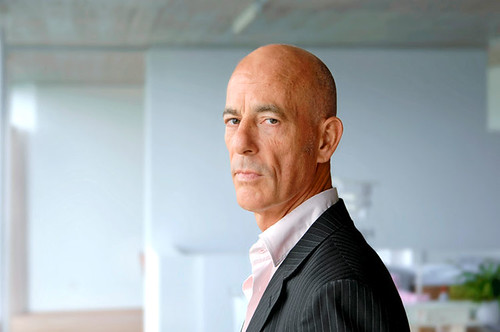
Jacques Herzog, the man behind the new Olympic Stadium in Beijing speaks with SPIEGEL on design ethics, politics and subversion. Some choice quotes:
"For us, this stadium is more than just a building. It's a part of a city. Vision is always such a big word, but our vision was to create a public space, a space for the public, where social life is possible, where something can happen, something that can, quite deliberately, be subversive or -- at least -- not easy to control or keep track of.
"We see the stadium as a type of Trojan horse. We fulfilled the spatial program we were given, but interpreted it in such a way that it can be used in different ways along it perimeters. As a result, we made everyday meeting places possible in locations that are not easily monitored.
"In the last few years, in particular, we have experienced the emergence of a new generation of artists, architects and intellectuals, and they have the ability to change the society in a lasting way. Playing a role in shaping this new era is far more interesting and probably even more moral than taking part in a boycott from one's desk. We aren't just referring to architects in this regard, but also to other creative figures. Steven Spielberg agreed early on to be the artistic advisor for the opening ceremony, and then he withdrew, essentially at the last minute, because the regime was no longer to his liking...
"It just smells like cheap propaganda, first agreeing to take part in this sort of event and then cancelling for a current political reason that was predictable. China has not become less democratic and does not respect human rights less than it did before. China is still a long way from what we in the West expect, but the establishment of a broad, new intellectual class is a hopeful sign of change.
"No one can approve of the miserable conditions under which people work there. It isn't just the migrant workers, but the entire factory system in China, which produces jeans, shirts and toys for the world, that works under such conditions. It is not within our power to change the conditions for migrant workers, nor is it our responsibility. We have nothing to do with the organization of the construction site, neither in China nor any place else in the world. The architect is increasingly unwelcome on the construction site, because he is simply in the way there and tries to interfere and change things.
"It would be far too easy to say: Well, of course we would never build in North Korea. Before we accept a commission, we ask ourselves whether we can achieve something that goes beyond the commercial. Our strength is to develop buildings that permit contradictions. We refuse to take part in projects that permit only one use, one form of interpretation, perhaps even an ideological interpretation. No one in Beijing asked us to deliver an ideological building."
[via Archinect]

No comments:
Post a Comment